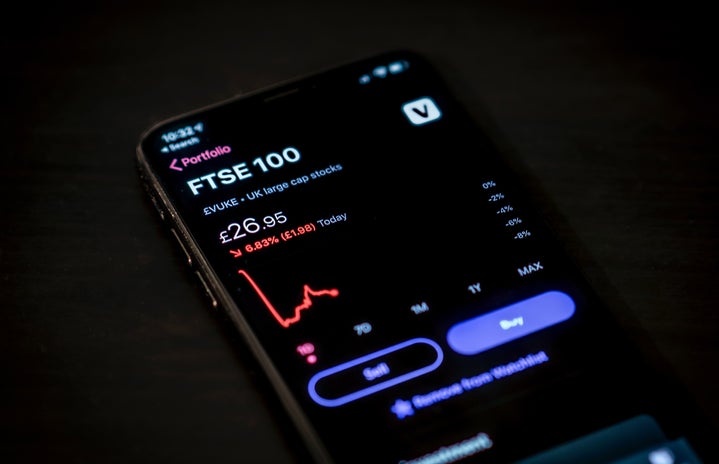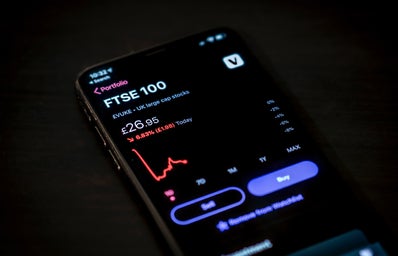As a university student, when quarantine hit and the world shut down, I was left with a question: “How can I make money while staying at home?” Jobs such as freelancing or using websites that pay you money to complete a task crossed my mind, but something I was more passionate about was becoming financially literate and making a passive income. Simply put, I wanted to make money while I slept, also known as investing.
Before dishing out stock market knowledge, you must be wondering what exactly this whole concept of investing is. Investing is essentially spending money with the expectation that it will grow in the future. You can invest in all sorts of things such as mutual funds, ETFs, index funds, single stocks, and more. Here’s is a quick breakdown:
Mutual Funds are funds that are being sold, bought into and rebalanced by a mutual fund manager in an attempt to beat the market. Mutual funds are actively managed, unlike Index funds and ETFs, whereby you can set it and forget it. This can have the added benefit (or disadvantage) of someone else making decisions for you, with a downside of lack of control.
Explained perfectly by author and financial advisor David Bach in his book Smart Women Finish Rich an exchange-traded fund (ETF) is a mutual fund that is traded in the same way as stocks, meaning that you can buy and sell them during regular market hours—between 9:30am and 4:00pm (Bach, 2018). In short, owning an ETF means that instead of owning a full share of a company, you own a percentage of shares in numerous companies. For a first-time investor, ETF’s might be the way to go, especially if you are looking to buy a stock for under $100.
An index fund is a mutual fund or ETF that aims to mimic a particular market. Similar to ETF’s, index funds contain a small piece of all the companies in the particular index you are tracking. Index Funds are similar to ETF’s in that they are both held for the long term, as they are usually low-risk, therefore meaning slower, more steady gains over time. The downside to index funds for first-time investors is that they usually require a minimum amount of money to be deposited in order to invest.
How do I know what to invest in?
The question you need to ask yourself is, “How much money am I willing to spend, and how much risk am I willing to take?” If you have a lot of money to spend but don’t want a lot of risk, you can consider looking into an index fund or ETF. If you don’t have much money to spend, an ETF (or a few) might be your best option. If you have a decent amount of money to spend and feel as though the risk is worth it, stocks are the way to go.
What stocks or ETF’s should I choose?
Many investors agree that a good place to start is answering the question, “Which company do I believe in most?” when buying your first stock. For example, I invested in Apple because own exclusively Apple electronic products, and I know they will continue to grow in the future. If you’re into Disney, or Starbucks, and believe the company is good and will lead to further growth, you can try that out! If you’re leaning towards ETFs, try researching the ETFs with the best rate of return.
How do I buy into the market?
You can call your local bank and open a direct investing account, or a direct investing TFSA account (Tax-free savings account). With the TFSA, your money is not taxable, and you can invest up to 6,000$ a year! There are even certain banks that allow you to set up a practice account to test out the waters as if you already owned the stocks!
When is the right time to buy?
“Buy low, sell high,” right? In actuality, it depends. If a stock is losing market value, it might be worth it to find out why. Sometimes the market moves with the news, and other times, a loss might be indicative of something bigger and could potentially lead to that company’s failure. A good time to buy is when a stock is continuously growing, and you believe it will continue to do so.
What happens if I lose money?
First thing’s first, don’t freak out. Most of the time, when you lose a small amount, you will gain it back. Remember, you are in it for the long run. It’s crucial to remember that the stock market can be risky and volatile, small losses will happen, but so will profits.
Finally, understand that there are ways to invest in the stock market that fit your needs. Whether you have long term or short-term goals, $50 or $5000, or you deal in low risk or high risk, you can enter the market based on what you feel most comfortable doing. Once you understand what’s going on, it can be quite a fun experience!
Bach, D. (2018). Smart women finish rich: 8 steps to achieving financial security and funding your dreams. New York: Currency


